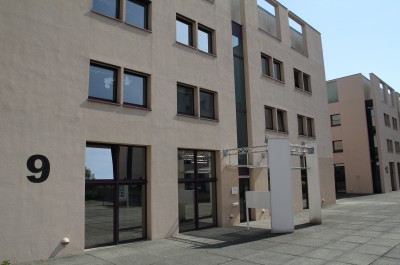2005 – 2012
Prof. Dr. Christian Pfeiffer
PD Dr. Thomas Mößle, Project Manager
Dr. Florian Rehbein
Eberhard Mecklenburg
Dr. Matthias Kleimann
Volkswagen Foundation
Prof. Dr. Hans-Jochen Heinze (Otto-von-Guericke University of Magdeburg)
Prof. Dr. Emrah Düzel (Otto-von-Guericke University of Magdeburg)
Prof. Dr. Beate Schneider (Institute for Journalism and Communication Research, Hanover)
Prof. Dr. Elsbeth Stern (Swiss Federal Institute of Technology, Zurich, Max-Planck Institute for Human Development, Berlin)
The aim of the project was to investigate the impact of intensive and increasingly uncontrolled television and video consumption among children and adolescents, and to develop media education alternatives. A combination of neurobiological, media psychology and media education research approaches will be used to study the neurophysiological and cognitive effects of media use.
Neurobiological experiments (conducted by Professor Hans-Jochen Heinze, Medical Faculty, Otto von Guericke University) and memory psychology studies (Florian Rehbein, KFN) will be used to illustrate the relationship between consumption of problematic media content and learning performance.
The aim of the longitudinal study in Berlin was to investigate how media use (especially of development-impairing media content) affects children and adolescents in terms of their leisure activities, their social behaviour, their intelligence and their school performance. It was also used to demonstrate the changes that can be achieved with targeted intervention and a reduction in media time. In the ‘learning’ project, useful models for media education were developed and tested in cooperation with participating schools.
Project related publications
- Mößle, T., & Rehbein, F. (2014). Die Rolle problematischer Mediennutzung für Schulerfolg und Gewaltverhalten – ein Geschlechtervergleich. In T. Mößle, C. Pfeiffer & D. Baier (Hrsg.), Die Krise der Jungen. Phänomenbeschreibung und Erklärungsansätze (S. 193-215). Baden-Baden: Nomos.
- Mößle, T., Kliem, S., & Rehbein, F. (2014). Longitudinal Effects of Violent Media Usage on Violent Behavior – the Significance of Empathy, Societies, 4(1), 105-124.
- Mößle, T., & Rehbein, F. (2013). Predictors of problematic video game usage in childhood and adolescence. Sucht, 59(3), 129-142.
- Mößle, T. (2012). „dick, dumm, abhängig, gewalttätig“. Problematische Mediennutzungsmuster und ihre Folgen im Kindesalter. Ergebnisse des Berliner Längsschnitt Medien. Baden-Baden: Nomos.
- Kleimann M. (2011). Medienlotsen gesucht! Konzeption und Evaluation einer Unterrichtseinheit zur Prävention problematischer Mediennutzungsmuster bei Schülerinnen und Schülern dritter bis fünfter Klassen im Rahmen des Berliner Längsschnitt Medien. Baden-Baden: Nomos Verlag.
- Rehbein F. (2011). Mediengewalt und Kognition: Eine experimentelle Untersuchung der Auswirkungen gewalthaltiger Bildschirmmedien auf Gedächtnis- und Konzentrationsleistung am Beispiel der Computerspielnutzung. Baden-Baden: Nomos Verlag.
- Mößle, T., Kleimann, M., Rehbein, F., & Pfeiffer, C. (2010). Media Use and School Achievement – Boys at Risk? British Journal of Developmental Psychology, 28, 699-725.
- Kleimann, M. & Mößle, T. (2008). The Logs of Eliza and Other Media Stories. Behavioral and Developmental Effects of a School Based Media Education Program – Berlin Longitudinal Study Media. International Journal of Behavioral Development, 32(6), Supplement 2 (54), 55-59

